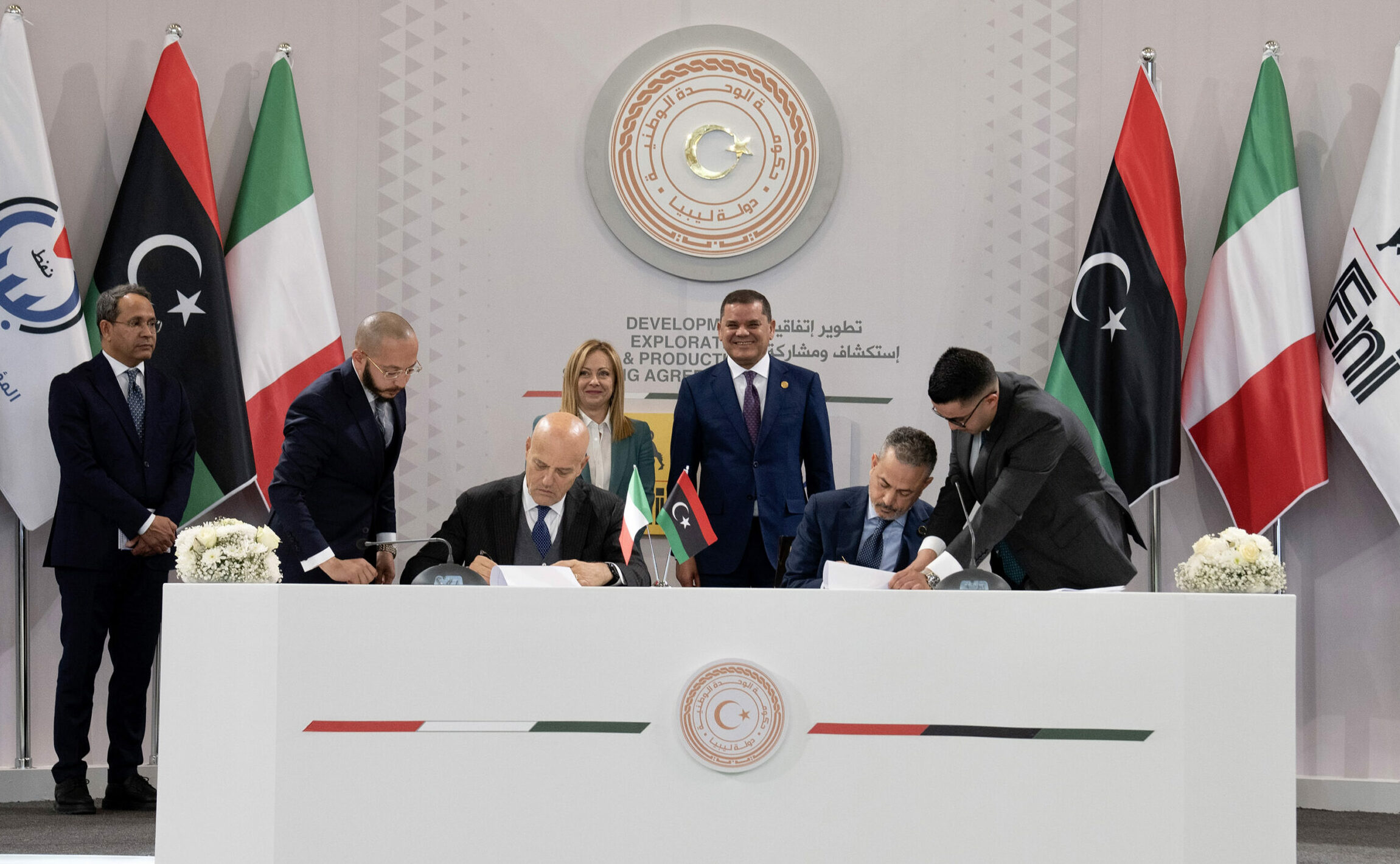Here are the numbers, goals and challenges of Eni’s maxi-gas deal in Libya

The $8 billion gas deal between Eni and Noc is the largest investment in Libya's extractive sector since 2011. But the Tripoli government itself, visited by Meloni, criticized the agreement. All the details
On Saturday 28 January, Eni and the Libyan state oil company NOC signed, as expected , an 8 billion dollar agreement for the production of natural gas in Libya.
It is one of the two major agreements signed during the visit to the country by Prime Minister Giorgia Meloni, accompanied not only by the CEO of Eni, Claudio Descalzi, but also by ministers Antonio Tajani (Foreign Affairs) and Matteo Piantedosi (Interiors): the another agreement provides for the strengthening of cooperation between the Italian and Libyan authorities on the control of migratory flows.
WHAT WE KNOW ABOUT THE "A&E STRUCTURES" AGREEMENT
The agreement between Eni and NOC concerns the development of two gas fields off the coast of Libya, called "Structure A" and "Structure E". Production is scheduled to start in 2026, at 750 million cubic feet per day. The extracted gas will be destined both for the Libyan domestic market and for export to Italy.
In addition, Eni will invest in the construction of a carbon dioxide capture and storage facility in Mellitah, where the plants for treating the gas before its export are located. The operating platforms of the “Struttura A” and “Struttura E” fields will be connected to this complex.
During the press conference with Descalzi, NOC president Farhat Omar Bengdara said that the agreement with Eni will last for twenty-five years. As Argus writes, it is the single largest investment in Libya's extractive sector since the start of the civil war in 2011, as well as the first major energy project in the country since 2000.
ALL GAS NUMBERS IN LIBYA
To date, 60 percent of Libyan gas output is destined for domestic electricity generation, and a further 25 percent is consumed by the national industrial sector. The remaining 15 percent is instead exported to Italy through the Greenstream pipeline, which reaches Gela (in Sicily) and has an annual capacity of approximately 8 billion cubic meters.
However, the pipeline is underused: in 2022 it transported only 2.6 billion cubic meters of Libyan gas to Italy, and 3.2 billion in 2021. These low volumes are affected by both Libya's limited investment in energy infrastructure and of the country's difficulties in keeping the hydrocarbon sector operational due to strong internal instability.
However, being located off the coast of Tripoli, activities in the "Structure A" and "Structure E" fields should be less affected by the disruptions that have characterized work in the oil and gas fields onshore in recent years.
THE POLITICAL DIFFICULTIES
The agreement between Eni and NOC is part of the so-called " Mattei plan ", the energy-political project of the Meloni government with the countries of North Africa and the eastern Mediterranean, which aims both to guarantee Italian energy security after the detachment from Russia , and to transform our peninsula into a gas distribution pole towards northern Europe, where the countries with the greatest consumption are located.
Italy has already strengthened relations with Algeria , which was our main gas supplier last year and where Meloni recently visited.
The success of the "Mattei plan", beyond the infrastructural issues, is however complicated by the under-investments in North Africa and by the social and political instability of the region, and in particular of Libya: the country continues to have two governments, one in Tripoli, recognized by the international community, and one in Tobruch, in the east.
Meloni met Abdulhamid al-Dbeibah, the prime minister of Tripoli's national unity government.
THE GOVERNMENT OF TRIPOLI ALSO CRITICISM THE ENI-NOC AGREEMENT
Fatih Bashagha, the head of government in Tobruch, said the NOC does not have the authority to sign the agreement with Eni. Agreement which, moreover, was contested by the Tripoli government itself: the Minister of Petroleum Mohamed Aoun criticized the agreement between the two oil companies, defining it "illegal", and arguing that the NOC acted independently, without consulting the ministry.
This is a machine translation from Italian language of a post published on Start Magazine at the URL https://www.startmag.it/energia/eni-accordo-gas-libia-italia/ on Mon, 30 Jan 2023 08:01:30 +0000.
